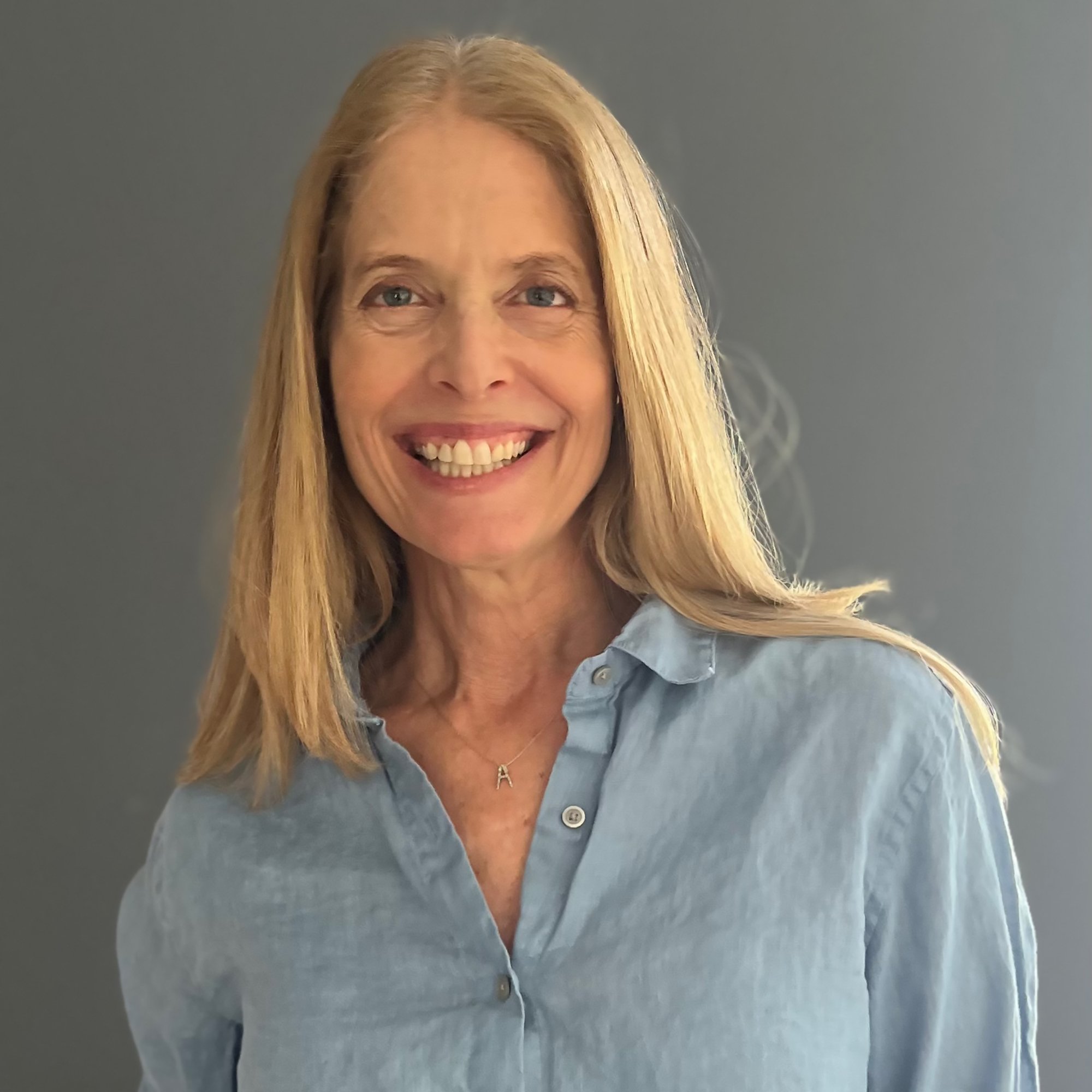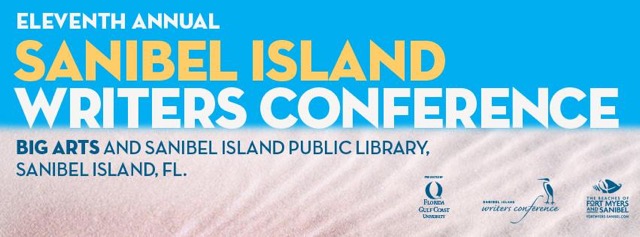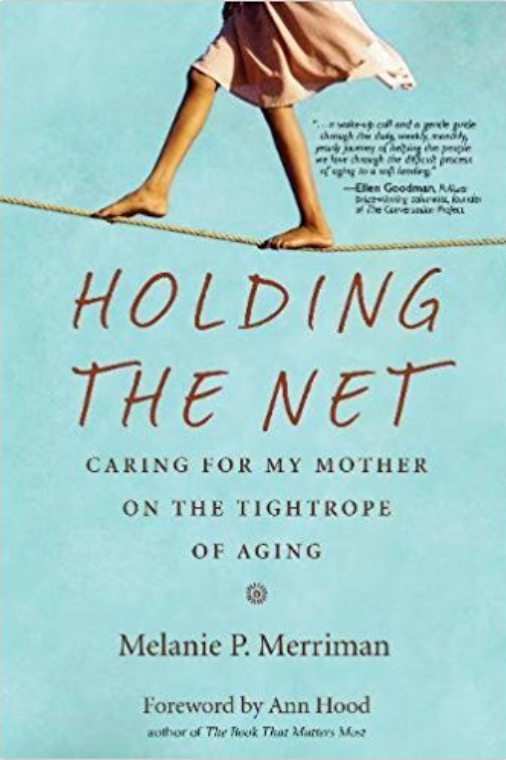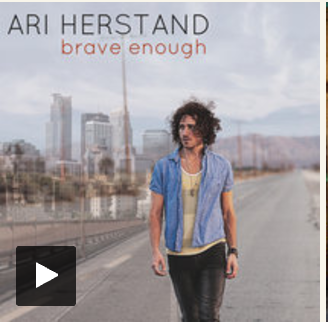Show Notes Episode 162: Do As I Say Not As I Do
/On this episode, you’ll hear a story by our own Allison Langer. You may have read her story in HuffPost, where she was published on Jan 16, 2023. The story ran with this title: People Say I'm A Grief Expert, But When My Friend's Husband Died, I Did Something I Deeply Regret.
Allison Langer is a Miami native with a University of Miami MBA, as well as a writer and single mom to three children, ages 13, 16 and 18. She is a private writing coach, taught memoir writing in prison and has been published in The Washington Post, Mutha Magazine, Scary Mommy, Ravishly, Modern Loss, NextTribe, and HuffPost. Allison’s stories and voice can be heard on Writing Class Radio, a podcast she co-produces and co-hosts that has been downloaded more than 750,000 times. Allison is currently working on a memoir.
Writing Class Radio is hosted by Allison Langer and Andrea Askowitz. Audio production by Matt Cundill, Evan Surminski, Chloe Emond-Lane, and Aiden Glassey at the Sound Off Media Company. Theme music is by Justina Shandler
There’s more writing class on our website including stories we study, editing resources, video classes, writing retreats, and live online classes. Join our writing community by following us on Patreon.
If you want to write with us every week, you can join our First Draft weekly writers groups. You have the option to join me on Tuesdays 12-1 ET and/or Thursdays with Eduardo Winck 8-9pm ET. You’ll write to a prompt and share what you wrote. Or Second Draft on Thursday 12-1 ET where students bring in an edited draft for feedback and help getting published. If you’re a business owner, community activist, group that needs healing, entrepreneur and you want to help your team write better, check out all the classes we offer on our website, writingclassradio.com.
Join the community that comes together for instruction, an excuse to write, and the support from other writers. To learn more, go to www.Patreon.com/writingclassradio. Or sign up HERE for First Draft for a FREE Zoom link.
A new episode will drop every other WEDNESDAY.
There’s no better way to understand ourselves and each other, than by writing and sharing our stories. Everyone has a story. What’s yours?
Transcript
Allison Langer 0:15
I'm Alison Langer.
Andrea Askowitz 0:16
I'm Andrea Askowitz.
Allison Langer 0:17
And this is Writing Class Radio. You'll hear true personal stories and learn how to write your own stories. Together, we produce this podcast which is equal parts heart and art. By heart we mean the truth in a story and by art, we mean the craft of writing. No matter what's going on in our lives, Writing Class is where we tell the truth, it's where we work out our shit. There's no place in the world like Writing Class and we want to bring you in.
Andrea Askowitz 0:45
Today on our show, we bring you a story by our very own Alison Langer. You may have read her story and Huffington Post where she was published on January 16th 2023. On this episode, we're talking about being the biggest asshole in a story, but not to your editor. We're also talking about writing to the why, figuring out why you do what you do. Back with Alison's story after the break, we're back. Here's Alison reading her story. People say I'm a grief expert, but when my friend's husband died, I did something I deeply regret.
Allison Langer 1:38
When my daughter McClain died 14 years ago, I was dubbed the expert on grief. McClain was 16 months old when she was diagnosed with a congenital heart defect that affected breathing and swallowing. A week before surgery, she choked on a french fry. On October 10th 2008, she died. Since then, I've been the person family and friends consult whenever someone dies. I'm asked what to say to the grieving family and what might help them. At funerals, I nod to the other parents who have lost children. We are expressionless and numb. I listen to the eulogies, remembering my own words and how it felt to be the mother of the guest of honor. I know what they're going through and what lies ahead. When my best friend's husband died, I still managed to screw up. Marshall had a heart attack in his sleep. Morgan woke up to his unusually loud exhalations. When she nudged him. something felt wrong. She yelled to her children. 17 year old Walker started CPR, Kirksey her 18 year old daughter called 911, but Marshall, a 61 year old man who worked out every day was dead. Last week, my girlfriends and I brought dinner to Morgan's. Our small group of friends has known each other ever since high school. We talk regularly and play cards or dominoes every few months. I made gluten free eggplant Rollatini, vegan but with real cheese on half because Morgan likes real cheese. So if he brought a salad with cranberries, arugula and homemade lemon vinegrette. Morgan shared a Cabernet from a winery she and Marshall discovered while traveling around Italy for their 20th anniversary. I thought about Marshall the entire time. His energy hung in the air calm and kind, just like always, but I didn't bring them up. We were at Morgan's for three hours and nobody mentioned Marshall's death. I wanted to appear happy, I didn't want to cry and ruin the mood and yet I knew better. I'd been here. I knew that being the happy friend didn't work for someone newly grieving. I knew it was too hard to hear about others' happiness. The week after McClain's funeral my girlfriend's brought food and wine. I sat at the dining room table, dominoes propped up in front of each person wanting them to leave so I could cry alone. I zoned out, floating above the table wishing I could reverse time and schedule McClain surgery for a week earlier. My friends talked about which preschools were better and who was hosting Thanksgiving dinner. I believe they too thought it was best to be as normal as possible for my sake, but I didn't want to talk about normal things. I wanted to talk about McClain. I wanted to complain about how cranky she was the last time I took her photo. How she just started saying Mama, how pale and tiny she was when I signed the papers to donate her organs. I wanted to tell them I didn't care who got her parts, I wanted them back. As my friends chatted about their kids I wondered why they got to keep theirs and I didn't. I couldn't understand why they were laughing, living life as if nothing had changed. What I know now is that life hadn't changed for them. They'd consoled me on the day they figured I needed consoling the most, but they didn't live with the pain like I did and didn't know what would be lost for me. When the card game was over at Morgan's and she was putting the decks away, I asked how Walker and Kirksey were doing, how she was doing. I've been sorting through the bills, Morgan said, Marshall's mess. That could have been my opening to let her talk about her husband, but before she could finish answering my question, my phone rang and I took the call, kissed everyone goodbye, grabed my empty dish and drove home. A few days later, I ran into Ashley who was also at the dinner. She told me Morgan was hurt because no one wanted to talk about Marshall. Shame swept through my body and settled in my chest. Tears filled my eyes as it pushed against my heart. Ugh, I screwed up, me of all people. I knew better. In the days since I've been trying to understand why I wasn't a better friend. Why didn't I talk about Marshall? Why didn't I do what I knew she needed the most. Maybe it's because I don't want the role of grief expert. That's a role nobody wants and nobody can fill, but that's not it. It hit me in the shower where I do my best thinking. I hadn't mentioned Marshall because each loss bring backs the pain, the numbness, the person missing from my own family. I'm afraid if I let myself feel that pain, it will destroy me all over again. If I could go back a week, I would have let the phone call I took go to voicemail. I would have sat there all night if that's what Morgan wanted. I would have taken my cues from her, which is what you should do with a grieving person, as they should be the one to decide if and when they want to talk, but no matter what I would have made myself available and open. I would have made it clear that I was up for anything she needed. If she wanted to just cry, I'd let her cry. If she wanted to drone on and on about her husband's mess. I would have let her drone. If she wanted to talk I would have asked about the funny things Marshall said during their travels in Italy. Instead of leaving I would have brought him back to life if only for an evening and celebrated the incredible man he was. From what I've experienced grieving people want to talk about their person. Maybe if the settings right and if you're at their house, girlfriend's gathered around drinking wine, their dog looking for a lap where there once was one. The setting is often right. If you're at a March of Dimes fundraiser with a roomful of strangers, you might want to wait until you're in the Uber home. But I suggest a time when your friend isn't wearing a full face of makeup. If you're unsure whether your friend wants to talk, listen or be alone, pay attention to the signs. A yawn, a stare or silence could mean it's time for you to leave. Do not say goodbye while on your phone. The call may seem like a slight to your hosts Do not leave with a sad, pathetic look on your face ― eyebrows squinched together, head tilted, mouth frowny. Nobody feels comforted by that look. Nobody. When it’s time, instead of giving in to the fear and hiding your emotions, show your friend you are missing him too. It’s OK to cry. You don’t have to have the right words ― there are no right words. You’re not going to be able to make it all better. It probably won’t be better for a long, long time. Maybe never. But you can be there and sometimes ― often ― that is enough. And you can make it clear that you will be there, that you’re just a phone call or a text away, if they need you. Check on them ― and not just for the few days or week after their loved one has passed. Grief sticks around, usually much longer than we talk about. Invite them to things. Be OK if they say no. But keep asking. This is what I wish people had done for me after I lost my child. This is what I wish I’d done for my friend. But we’re only human, and grief is a tricky, difficult thing. Even those of us who know it well can end up doing something that feels wrong. And every death is different. Every person left behind is different. But the one thing that is always the same is that we can make the offer to be there, however that looks or feels for that grieving person, and that will be more than enough ― it’ll be a gift.
Andrea Askowitz 9:15
Wow. One thing that I think this story does so so well is asking the narrator, you asked yourself why. Why did I act like that? And then in the exploration of why it sort of like it goes on one level. It's like, why'd I do that? Because I didn't want to ruin the mood. Like I didn't want to cry. But then while the narrator was in the shower, she realized the real real why and that was she didn't want to dredge up all this pain again for herself and that is to me what a story should do. Its figures out why I acted the way I acted and so often it's why did I act like an asshole and what I love so much Allison, I love this so much about your writing all the time, but what I, in this case, I just love that, like the narrator is not afraid to just like, admit that she made this really big mistake. The ending of this story is also it's a cautionary tale. And the narrator's able to tell me, the reader what to do, because she's lived it like she starts from the very beginning and tells us that she is a grief expert. She doesn't want to be a grief expert, but she is and she proves that she is because she tells us that her daughter died. And then she tells us that she knows exactly how it feels for anyone who loses someone like she's like making eye contact with people at other funerals and like knowing exactly how they're feeling like I trust that this narrator knows what is going on for people when someone dies. Then she shows us how close she is with her friend with the details of like the salad and the vegan and just like hanging out, I thought that was really well done because we know what they're like together. She also bounced back and forth between her friends hanging out when her daughter died and then her friends hanging out when her friend's husband died. So we have like these two parallel scenes going on, which I thought was brilliantly done. So she's at her friend's house after her friend's husband died and she didn't bring him up for three hours. Like she recognizes what she did. Then she leaves then she wishes she could do it again. Because she wishes she could go back and not take the phone call that she took right after there was a moment where her friend was about to talk about him. She just really wishes that she didn't walk away, but we understand why she did. Because she has been through it herself. Amazing. Amazing. Amazing.
Allison Langer 12:07
Thank you. I will say that when I sent it in to the Huffington Post, and I feel like I sent it-
Andrea Askowitz 12:15
I think it's Noah Mickelson. Okay, go ahead.
Allison Langer 12:17
Oh, yeah, I sent it to him first. Yeah, cuz I was like, this seems like something he might like. And I want it to be published in the Huffington Post. I really wanted that. So when I sent it, he's so amazing. Like, within minutes, he was like, love it, add 300 words at the end. Tell me why. Tell me tell me what you wish you had done differently. So I quickly banged it out and then he even wanted more and that's not really necessarily our structure, at Writing Class Radio, we don't tend to give advice. We don't really share cautionary tales.
Andrea Askowitz 12:48
It's not our style. It's not our style.
Allison Langer 12:50
Yeah. But I really liked it so much more. And what was also interesting, I thought, I mean, I'm looking at it now and I was like, Ah, I could cut I could cut like you and I just love to cut. What's interesting is that so many people responded to this and not just because Morgan has, like 500 people on her Christmas list and is such a good friend to everyone, but is because I think this story resonates with a lot of people, especially as we're getting up there and age and people are dying. Our friends families are you know, and how do we be there for somebody and no one really has it down.
Andrea Askowitz 13:26
No one knows what to do, but you laid it out. No one knows what to do when someone dies. And you really told us in this story, you told us you were like take basically the main takeaway that I have, if I'm in this position where someone I love loses someone they love, is I'm going to wait for their cues. I'm going to be like, totally observant it to see if they want to talk about whoever they lost. And if they do, I'm going to try my best to be there.
Allison Langer 13:55
If I have to say one word it show up. Just show up. People are like I don't know what to say, I don't know what to do, just show up. Just be there, that's it,. And then the rest of the stuff, then you listen, you know, and then like you say you wait for the cues, but I mean, there's so many times like, people get bad news, just show up. Just do it. It doesn't have to be perfect, but it shows that person that you care. And you know, we're there, but I did this shit thing when I was there. So you show up and then you try to listen. So I just I don't know.
Andrea Askowitz 14:29
Well, you said it twice in the piece where you said take the cues, but you said differently a little while later, but it was the same idea. It's just like wait, wait to see if it's a good time and it probably is a good time.
Allison Langer 14:43
Yeah. Yeah.
Andrea Askowitz 14:45
I did think the ending was a little too long. So I think that it is the style of Huffington Post and I do think that I love being told exactly how to handle this situation, but I did also that was the one thing I noticed, and maybe it's just a style thing. I mean, the whole story is so well structured and so beautiful and sad and oh.
Allison Langer 15:10
Well, what I think is really funny is that when Noah sent it back, and he's like, 'okay, this is going in, if you don't like it, that's fine. We don't have to run'. But basically, there was like, it's my way, or you can leave and he was very nice about it, but it's like, these editors just like us. Like when we're editing something, it's like, yes, you can have your opinion, but if we don't like it, it's out. So keep your opinion, if you want, but that's not going to work for me. So I was like, I don't care like if it has a couple extra sentences I would normally take out I couldn't care less. Whatever works.
Andrea Askowitz 15:42
Well, you have grown, you have grown a lot as a writer. This is this is new.
Allison Langer 15:50
He didn't cut anything out. He just added so I'm cool with that.
Andrea Askowitz 15:54
Oh I dont know I think you're cool, you would have been cool if he cut stuff too. You've learned that this is one way of telling this story. There are a million ways to tell the story, like you're not precious anymore. And so you've become not an asshole to your editor. It's really, it's really lovely. Being being your editor, sometimes, it is. It's good. You've evolved.
Allison Langer 16:18
Now when you send me edits, I still cut you out. I still take a walk around the block. Actually, sometimes I don't take a, I don't need the walk around the block anymore, I just read it and I got alright. She might be right here. And I just so yeah, you've taken a few steps out of my tracker.
Andrea Askowitz 16:38
Yay.
Allison Langer 16:39
But I think it's hard to earn trust, I do. Some of these publications obviously, if you're trying to get in, you got to trust them. Or you don't apply or you don't go or whatever, but like any random person is it's hard to trust somebody else when you have ideas of what you think something should be. And the bottom line is maybe just see what somebody's done and what you like, and if you like their style, then you you you submit to them, but if you don't, don't waste their time.
Andrea Askowitz 17:06
Thank you, Alison, for writing and sharing this story. And thank you for listening.
So Writing Class Radio is hosted by me Andrea Askowitz.
Allison Langer 17:25
And me Alison Langer.
Andrea Askowitz 17:27
Audio production by Matt Cundill, Evan Surminsky, Chloe Emond-Lane and Aidan Glassey at the Sound Off Media Company. Theme music is by Justina Shandler. There's more Writing Class on our website, including stories we study editing resources, video classes, writing retreats, and live online classes. Join our writing community by following us on Patreon. If you want to write with us every week, you can join our first draft weekly writers groups. You have the option to join Allison on Tuesdays noon to one Eastern and or Thursdays with Eduardo Wink, eight to nine pm Eastern. You'll write to a prompt and share what you wrote. If you're a business owner, community activist groups that needs healing entrepreneur, or anyone who just wants to help their team write better. Check out all the classes we offer on writingclass radio.com. Join the community that comes together for instruction, an excuse to write and the support from other writers. To learn more, go to writingclass radio.com. A new episode will drop every other Wednesday.
Allison Langer 18:41
There's no better way to understand ourselves and each other than by writing and sharing our stories. Everyone has a story, what's yours?
Tara Sands (Voiceover) 18:55
Produced and distributed by the Sound Off Media Company.















